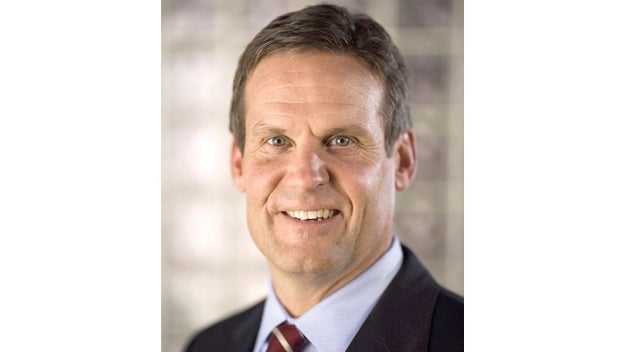Tennessee governor announces safer-at-home order
Published 9:40 am Tuesday, March 31, 2020

- Gov. Bill Lee
NASHVILLE (AP) — Tennessee Gov. Bill Lee issued a statewide “safer-at-home” order on Monday to help stem the state’s rapid spread of coronavirus, mandating the closure of all nonessential businesses while urging residents to remain at home whenever possible for the next two weeks.
However, the Republican maintained his continued resistance to handing down stronger social distancing measures taken by other states.
‘”This is this is not a mandated shelter in place order, but it is a strong urging for Tennesseans to stay at home,” Lee said during his daily media briefing. “I personally believe that with personal liberty comes personal responsibility.”
Essential businesses range from health care organizations, human services operations, grocery stores, funeral homes, laundromats and religious facilities.
Lee’s announcement comes just a day after his administration confirmed that 74 residents at a Tennessee nursing home tested positive for the new coronavirus and had been transported to a hospital for treatment; meanwhile, 63 remaining residents had been shuttled to nearby facilities to be quarantined and monitored.
Lee has resisted multiple calls to issue a statewide stay-at-home mandate ever since confirmed cases of the virus began popping up throughout the Volunteer State — countering that Tennessee’s major population centers had already implemented such restrictions.
To date, Lee has repeatedly encouraged residents to work from home and ordered bars and restaurants to close with the exception of drive-thru, take-out and delivery services. Other restrictions have included closing gyms and fitness centers, and barring most visitors to nursing homes, retirement homes and long-term care facilities — as well as prohibiting social gatherings of 10 or more people.
Additionally, Lee’s administration had also formed a so-called “unified command group” made up of representatives from the state health agency, Tennessee National Guard and Tennessee Emergency Management Agency to handle the state’s response to the coronavirus outbreak.
Yet despite those efforts, Lee continued to face scrutiny from hundreds of doctors and nurses pleading with the Republican that they need a mandated stay-at-home order to prevent the state’s health care system from being overwhelmed.
As of Monday, Tennessee’s health agency had confirmed more than 1,800 cases and at least 13 deaths, spreading across 77 of the state’s 95 counties.
The safer-at-home announcement came just hours after U.S. Rep. Steven Cohen told reporters that he was going to send a letter not only to Lee, but also to the Republican governors of Mississippi and Arkansas encouraging them to issue stay-at-home orders for residents in an effort to ease the burden on Memphis hospitals that will likely end up treating COVID-19 patients from those states in coming weeks.
Cohen later applauded Lee’s Monday decision, but warned that a shelter in place “must become mandatory.”
The Memphis Democrat says that Memphis hospitals could face a crush of patients from western Tennessee, northern Mississippi and eastern Arkansas counties where there are not enough ventilators.
“It’s just not right for the citizens of those states, and for the citizens of Memphis, to have an undue burden when it gets here, in give or take three weeks,” Cohen said during a Monday conference call. “We cannot afford to use the ventilators we have here for people in states where the governors have not prepared.”
A report compiled for the joint Shelby County task force on coronavirus shows that Memphis’ five main hospitals had 121 open intensive care beds and 136 of 204 ventilators available. Hospital officials in Memphis have said that they are working to secure more important hospital supplies
Shelby County, which includes Memphis, had 379 confirmed cases and one death as of Monday, the county health department said.
For most people, the new coronavirus causes mildor moderate symptoms, such as fever and cough that clear up in two to three weeks, and the majority of people recover. But severe cases can need respirators to survive, and with infections spreading exponentially, hospitals across the country are either bracing for a coming wave of patients, or already struggling to keep up.





